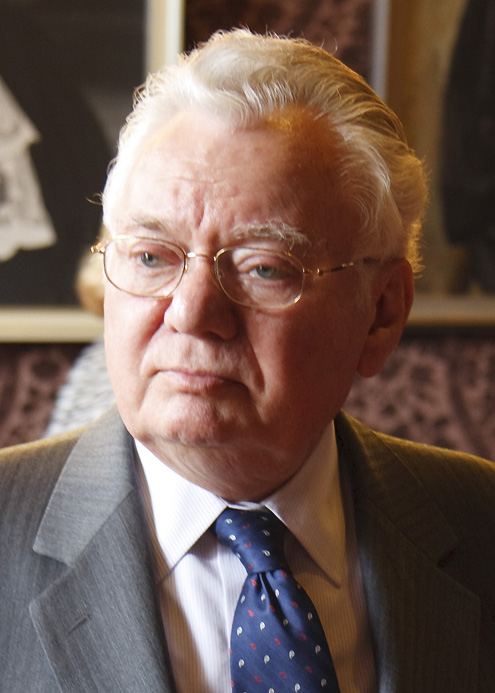His father was a Polish Jew living in Slovakia, where he ran a hotel. Thomas Buergenthal’s mother, on the other hand, was a German Jewish woman who visited the hotel one day to take a break from the suitors in her hometown of Göttingen. A year later, Thomas was born in Lubochna, Czechoslovakia. His preserved memoirs contain stories of persecution that befell people of Jewish descent. His father’s hotel was confiscated, resulting in the family’s departure to Zylina. About this period, Thomas Buergenthal recalls that his mother had to learn to cook, something she had not done before, having a cook at the hotel:
In Lubochna my mother never had to cook (…) in Zylina things were quite different, and I soon noticed that my mother was not a particularly good cook. Once she baked an inaccurately butchered chicken. My father got down to it and after a while he had a mouthful of grain (…) he spit it out, of course, and a big brawl began “I thought they taught you something at that pension in Göttingen!” – he shouted. The mother went into a counterattack by bringing up some long-forgotten incident that he was guilty of, and when the father said it had nothing to do with the quality of her cooking, she accused him of changing the subject.
After the Germans invaded Czechoslovakia, the Buergenthal family fled to Poland. Soon after, they were all granted exit visas to Britain. According to the schedule prepared by the English, they were to leave Poland on September 1, but fter the outbreak of World War II, the family ended up in Kielce, where they lived in the ghetto until its liquidation in August 1942. Of those terrifying moments, Thomas Buergenthal, then a 7-year-old boy, recalls:
In the gray dawn we were awakened by horns (…) the liquidation of the ghetto was in progress (…) screams and crying were coming from everywhere. My mother immediately started packing suitcases and begged my father to hurry up. Father stood at the kitchen sink, shaving extremely carefully and repeated to mother to calm down. “Let me think” – he repeated again and again.
The Jews of Kielce were mostly taken to Treblinka and murdered there. Thomas’ father, however, was given a job as a workshop manager, making clothes and shoes for the Gestapo, German policemen and their families. Thanks to his father’s pass to leave the ghetto, provided by the position, the Buergenthal family survived the liquidation of the ghetto and ended up in a local labor camp.
In August 1944, 10-year-old Thomas Buergenthal and his parents were sent to Auschwitz. He was separated from his mother on the railroad ramp and spent the next two months with his father. He avoided the gas chamber several times during the selection of the famous Dr. Mengele. During this time, children were mostly killed, but he managed to survive thanks to his father’s care.
In October, a selection took place, during which Thomas Buergenthal was taken away from his father. He never saw him again later. In the months that followed, Thomas Buergenthal had to fend for himself. In early January 1945, the evacuation of the camp began. The less than 11-year-old boy took part in the so-called “death march”.
I walked as if in a trance. I forced myself to go on, because I wanted to live.
The march of thousands of prisoners reached Gliwice, and then, in uncovered wagons, the transport reached the Sachsenhausen concentration camp. On the spot, a young boy noticed that his feet were frostbitten. He was sent to the camp hospital, where the affected toes were amputated. Thomas spent the next few months in a hospital barracks. He was helped there by Norwegian prisoner Oddo Nansen, who after the war became one of the founders of UNICEF. The camp was liberated on April 22, 1945. Thomas remembered the first moments of freedom as follows:
Walking toward the kitchen I noticed an open door to some office, I went inside. Maybe they really liberated us,” I thought, stepping up to the desk and removing a portrait of Hitler from the wall. I hurled it against the the floor (…) I spit on the picture and began to trample on the leader’s face (…) having finished this work, I sat down behind the desk and picked up the telephone receiver. It was not working, but despite that i was talking on the phone, telling to my imaginary listeners that Hitler and all Germans are dead.
After liberation, he returned with the Polish army to Poland, where he lived for a time in a home for Jewish orphans in Otwock. There he also learned that his mother had survived:
So she’s alive! It was the happiest moment of my life. I cried and laughed at the same time (…) I had a mother, and that meant I could be a child again.
